In their drafting history, the Philadelphia Flyers have often been forced to get creative with them having made the playoffs all but eight times from their inaugural 1967-68 season through their 2011-12 campaign. In doing so, they’ve hit on a lot of players.
Unfortunately, some of those hits found their stride with other organizations. Which Flyer draft picks were at their best after departing from the franchise?
Scott Mellanby (1984)
Gritty forward Scott Mellanby was a force in his playing days. In that way, he’s the perfect Flyer. In the 1984 NHL Draft, the Flyers naturally took a chance on the physical yet skilled winger with the 27th overall pick.
Mellanby was already a Flyer by his age-19 season, albeit playing just two games. The 1980s were known for their high-octane offenses, but he didn’t necessarily benefit from this. He spent five more seasons in Philadephia, accumulating 197 points and 694 penalty minutes in 355 total games. That’s decent production, but it did make him expendable.
Following the 1990-91 season, Mellanby was traded to the Edmonton Oilers in a package that returned Jari Kurri. But he was then flipped in a package that brought Steve Duchesne to Philadelphia. It took a couple more seasons, but Mellanby finally found his stride with the Florida Panthers in the mid-1990s.
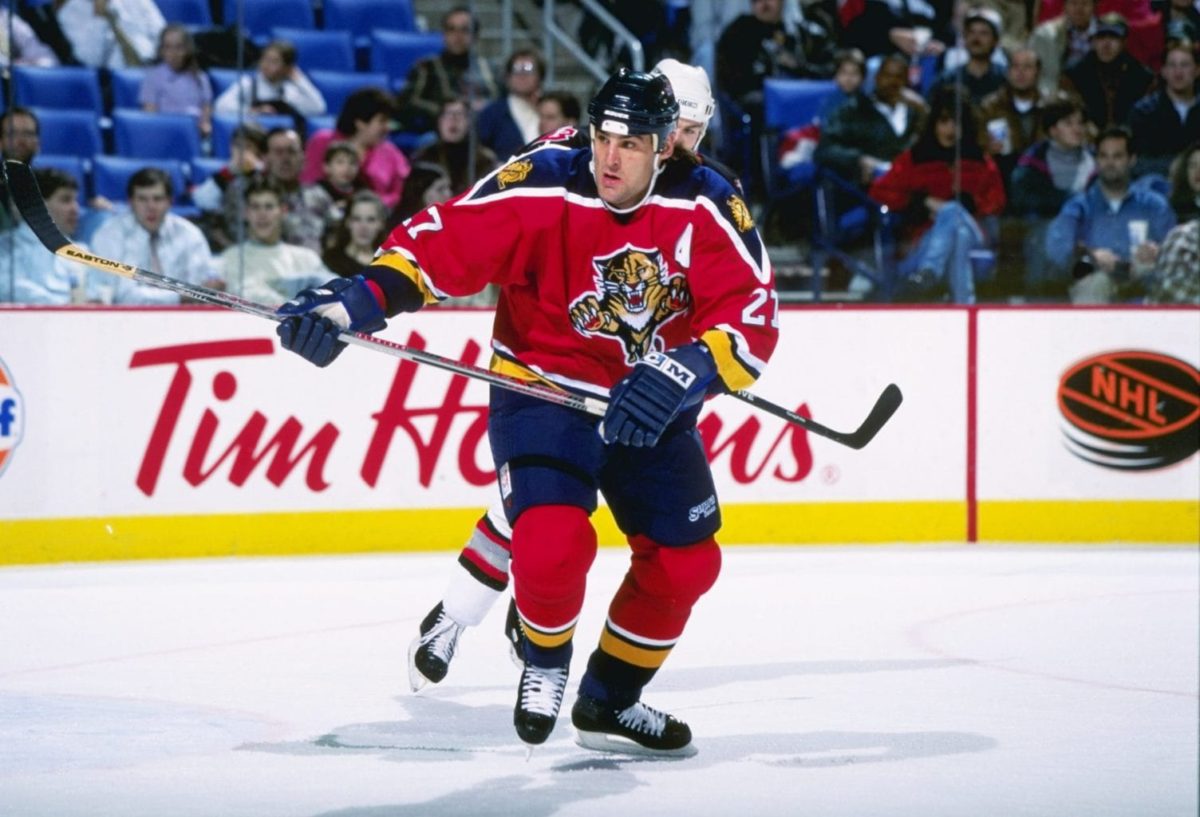
Even though scoring in the mid-1990s was much lower than what it was when Mellanby entered the league, he had his best season in 1995-96 scoring-wise. His 70 points tied him for 46th in the NHL, while his 32 goals tied him for 34th. He led Florida in goals and points, receiving some Hart Trophy consideration in the process. He wasn’t impressive in the postseason, with just nine points in 22 games, but he was a big reason why his Panthers made the Stanley Cup Final.
From that point forward, Mellanby was a solid top-six player for the Panthers and St. Louis Blues. In his career, he scored 364 goals and 476 assists for 840 points in 1431 games. In hindsight, the Flyers probably wish they hung onto him for a bit longer.
Chris Simon (1990)
A few seasons after selecting Mellanby in the second round, the Flyers took another gritty forward in Chris Simon with the 25th overall pick in the 1990 NHL Draft. Simon took his physicality to another level, putting up 413 penalty minutes in just 146 career Ontario Hockey League (OHL) contests.
Simon never got to play for the Flyers, as he was part of the blockbuster Eric Lindros trade that brought “The Next One” to Philadelphia. The generational forward was seen as a player who could bring everything Simon had physically and much more offensively, so the youngster served as a throw-in for the deal.
Related: Eric Lindros Trade Revisited
Simon didn’t truly find his stride until the mid-1990s, having a couple of solid seasons points-wise and piling up the penalty minutes. He eventually found his way to the Washington Capitals, and that’s where his career took a step in the right direction. He became an important top-nine forward for them, entering his prime in the 1999-00 season. He put up a career-high 29 goals and 49 points, shooting 14.4 percent on the season. As a result, he received a third-place vote for the Hart Trophy and finished 13th overall in terms of voting.
Simon never quite made it back to the success that he found that season, but he did manage to stick around until the 2007-08 season. In the end, he had a respectable NHL career with just under 800 games played.
Peter Forsberg (1991)
Swedish phenom Peter Forsberg was one of the Flyers’ best prospects ever. Drafted with the sixth overall pick in the 1991 NHL Draft, the Flyers had themselves a potential gem. In what is the modern-day Swedish Hockey League (SHL), he was already used to playing with grown adults in his draft year — he scored a masterful 17 points in just 23 games as a teenager.
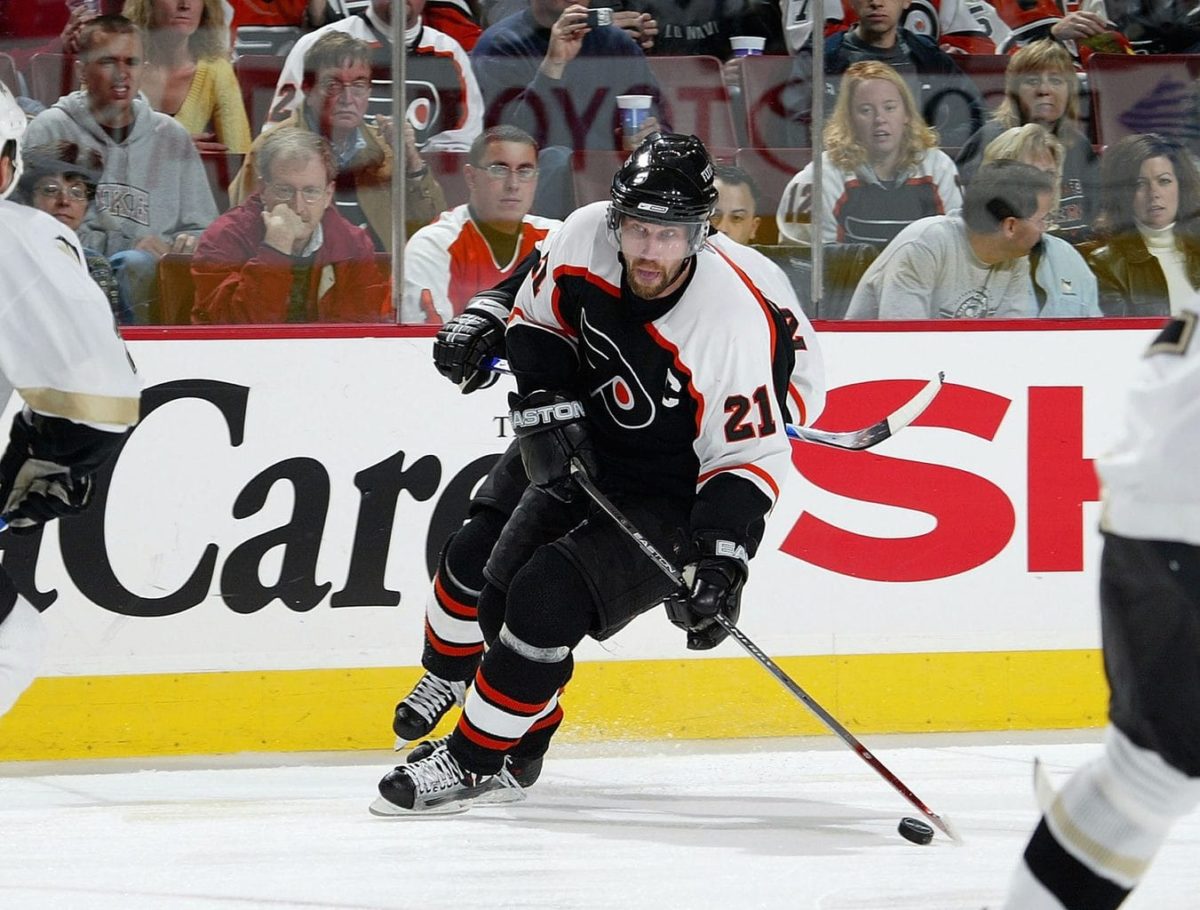
Like Simon, Forsberg was in the deal that sent Lindros to Philadelphia before he even played a game. However, this Swedish sensation was the centerpiece of said deal. After getting traded from the Flyers, Forsberg had a tremendous career that surpassed his hype. He led the league in points and won the Hart Trophy in 2002-03, won two Stanley Cups, and was a point-per-game player in all but two of his 13 seasons in the NHL.
Forsberg returned to the Flyers after signing a two-year contract with them before the 2005-06 NHL season. He scored 115 points in just 100 games in that span, still showing he was a superstar talent, even in his 30s. By the end of his career, he put up 885 points in just 708 games in the NHL.
Even though Forsberg is the only Hockey Hall of Fame player on this list, he has played in the least amount of NHL games of any skater featured. His extensive injury history plagued what could have been one of the greatest careers ever. He still had a sensational impact, but it could have been much more.
Vaclav Prospal (1993)
Vaclav “Vinny” Prospal was a mid-round steal for the Flyers. In the 1993 NHL Draft, they snagged him with the 71st overall pick. He immediately started in the American Hockey League (AHL) and became a vital young producer. By his 1996-97 season, he was tied for third in the AHL with 95 points in just 63 games as a 22-year-old. The Flyers recognized that it was time to try him out in the NHL, but his leash was short.
He had 15 points in 18 games in a short stint in the NHL in 1996-97 but regressed the following season with just 18 points in 41 games in orange and black, albeit averaging just 12:05 of ice time. When he was just 22 years of age, the Flyers saw him as expendable when a shiny Alexandre Daigle was on the trade market. The former first-overall pick could be theirs, but it came at a pretty penny. The same age as Prospal, the Flyers went all in to acquire him, with him having shown some flashes in the past.
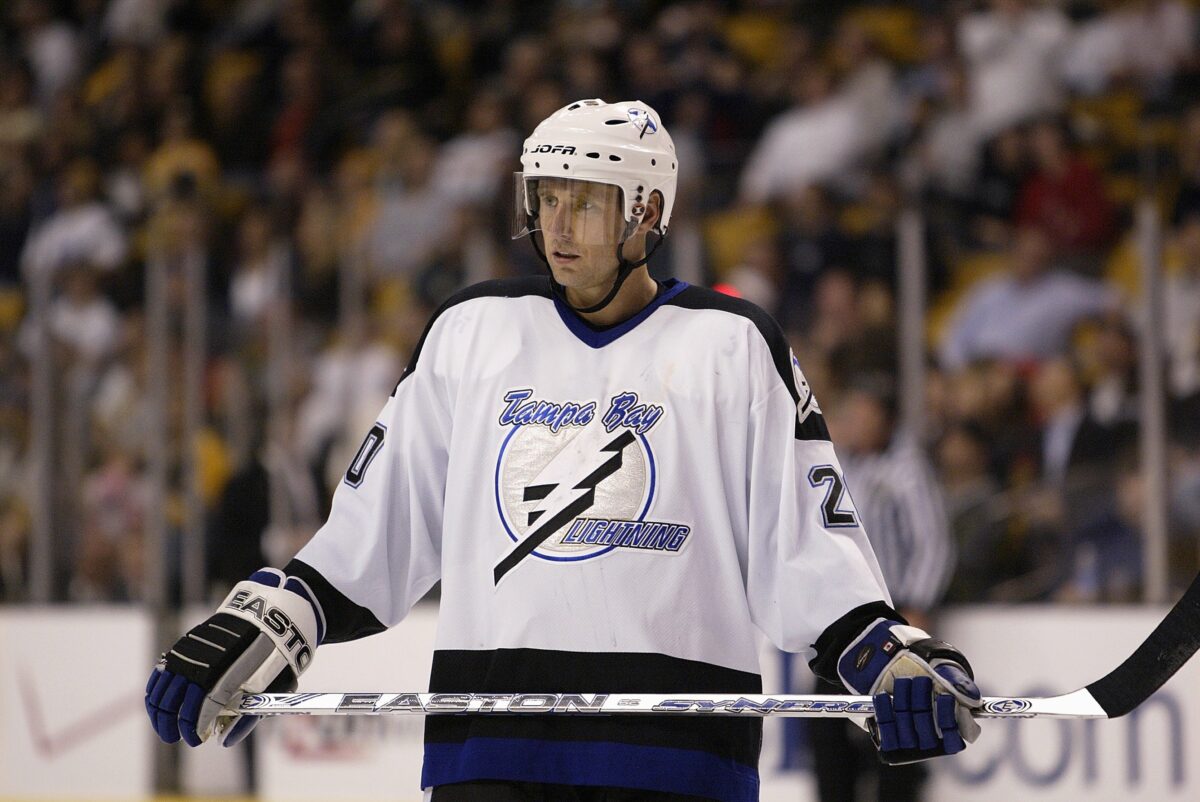
Getting Daigle proved to be the wrong move for the Flyers, as he never reached his previous career highs of 51 points in 1993-94 and 1996-97. As for Prospal, he had a long, fulfilling career that saw him become a huge top-six piece for the Tampa Bay Lightning. Over his 1108-game career, he had 255 goals and 510 assists for 765 points. The Flyers definitely missed out on that front.
Johan Hedberg (1994)
Goaltender Johan Hedberg wasn’t seen as much of anything when the Flyers selected him with the 218th overall pick in the 1994 NHL Draft. This was the case to the extent that he didn’t even get a chance to play for the team, bouncing his way from club to club before eventually getting a chance with the Pittsburgh Penguins for the 2000-01 season.
Once Hedberg arrived in Pittsburgh, he took his chance and shined. He saw limited action in his first season but had a 7-1-1 record in just nine games. That paved the way for a 66-game season in 2001-02 — he went from unwanted to the only reliable starter on an NHL team.
Hedberg had mixed success in the NHL, where he routinely hovered just above and below a .900 save percentage (SV%), but was still used by many teams. At the end of his career, he played in 373 games and won 161 of them. For a goaltender who didn’t play in the NHL until he was 27, he made out okay.
Dainius Zubrus (1996)
In the 1996 NHL Draft, the Flyers looked to a Lithuanian stud by the name of Dainius Zubrus for their first-round selection. At 6-foot-5 and weighing in at over 200 pounds, he certainly had the makings of a menace. He quickly found himself on the Flyers’ roster in 1996-97, where they reached the Stanley Cup Final. He played most of the regular season and playoffs, getting some action at the NHL’s grandest stage as an 18-year-old.
Zubrus simply never broke out with the Flyers. He had good production with 33 points and a plus-29 rating in 1997-98 but was on the trade market when star forward Mark Recchi became available.
You may also like:
- NHL Morning Recap – January 18, 2026
- Flyers Must Alter Roster Usage to Avoid Long-Term Stagnation
- Flyers’ Sam Ersson Running Out of Time to Turn Things Around
- NHL Morning Recap – January 16, 2026
- NHL Morning Recap – January 15, 2026
Recchi, who recorded a franchise-record 123 points in 1992-93 in Philadelphia, was a must-have for the Flyers. They packaged Zubrus and a late-round draft pick to get the star forward on their roster. Of the moves so far, this is one that they have no reason to regret. Recchi played six more seasons with the Flyers and finished with a Hart Trophy vote in three of those.
That’s not to say Zubrus wasn’t a good player, either. After getting dealt from the Flyers, he had consistently decent seasons as a middle-six staple with some skill and defensive upside. He had his best offensive season in 2006-07, where he had 52 points in 60 games with the Capitals, netting them a first-round pick from the Buffalo Sabres in exchange for his brief services at the trade deadline.
Zubrus’ career spanned 1293 games and netted him 591 points. The only award consideration he ever got was a fourth-place vote for the Selke Trophy in 2002-03, but his longevity was still admirable.
Justin Williams (2000)
One of the Flyers’ biggest mistakes in recent memory came when they let go of forward Justin Williams far too soon. Taken with the 28th overall pick in the 2000 NHL Draft, they saw something out of the Ontario native. As a teenager, he played on the Flyers’ 2000-01 squad and appeared in 63 games. He was a depth forward, but his 25 points cemented his status as an NHL-ready player.
Williams got increased opportunity but didn’t quite hit it off in Philadelphia. His 26 points in 47 games in 2003-04 didn’t cut it for the Flyers, and he was sent off to the Carolina Hurricanes in a one-for-one swap for defenseman Danny Markov. Markov was a good player for the Flyers in their run to the Eastern Conference Final that season, but he never earned a second contract. As for Williams, he went on to earn a reputation as a playoff warrior over his following 15 NHL campaigns.
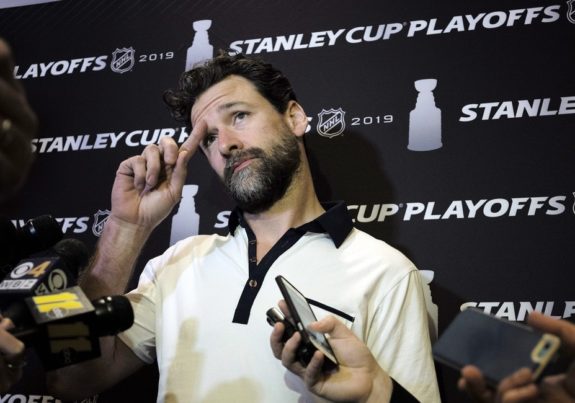
In 2005-06, Williams finally became an essential player in Raleigh. In the regular season, he averaged over 21 minutes of ice time. That led to a 31-goal, 76-point season that helped get the Hurricanes into the postseason. In those playoffs, he registered 18 points in 25 games and won his first-ever Stanley Cup as a 24-year-old. In the two Game 7 contests that Carolina had in that playoff, he had two goals and four points total. That was the beginning of his “Mr. Game 7” monicker.
Williams continued to be an important top-six forward for the Hurricanes, as well as the Los Angeles Kings later in his career. In 2011-12, he scored 15 points in 20 games to lead the Kings to their first Stanley Cup in franchise history. In 2013-14, he won the Conn Smythe Trophy after scoring 25 points in 26 games en route to the Kings’ second Stanley Cup in just three seasons.
Williams was an iconic playoff contributor, even when he was well into his 30s. Overall, he scored 102 playoff points in 162 playoff games. When faced with a Game 7 showdown, he had 15 points in just nine games. With a record of 8-1 in those games, he was the go-to performer in clutch situations. One of those wins was a three-point performance with Philadelphia, so the signs were certainly there.
Patrick Sharp (2001)
Winger Patrick Sharp was not always seen as a star player. Selected with the 95th overall pick in the 2001 NHL Draft by Philadelphia, it took some time for him to get some looks in the NHL. For three seasons, Sharp only played 66 games with the Orange and Black. With just 10 goals and 15 points in those games, they moved on during his age-24 season. They didn’t know it at the time, but this turned out to be a grave mistake.
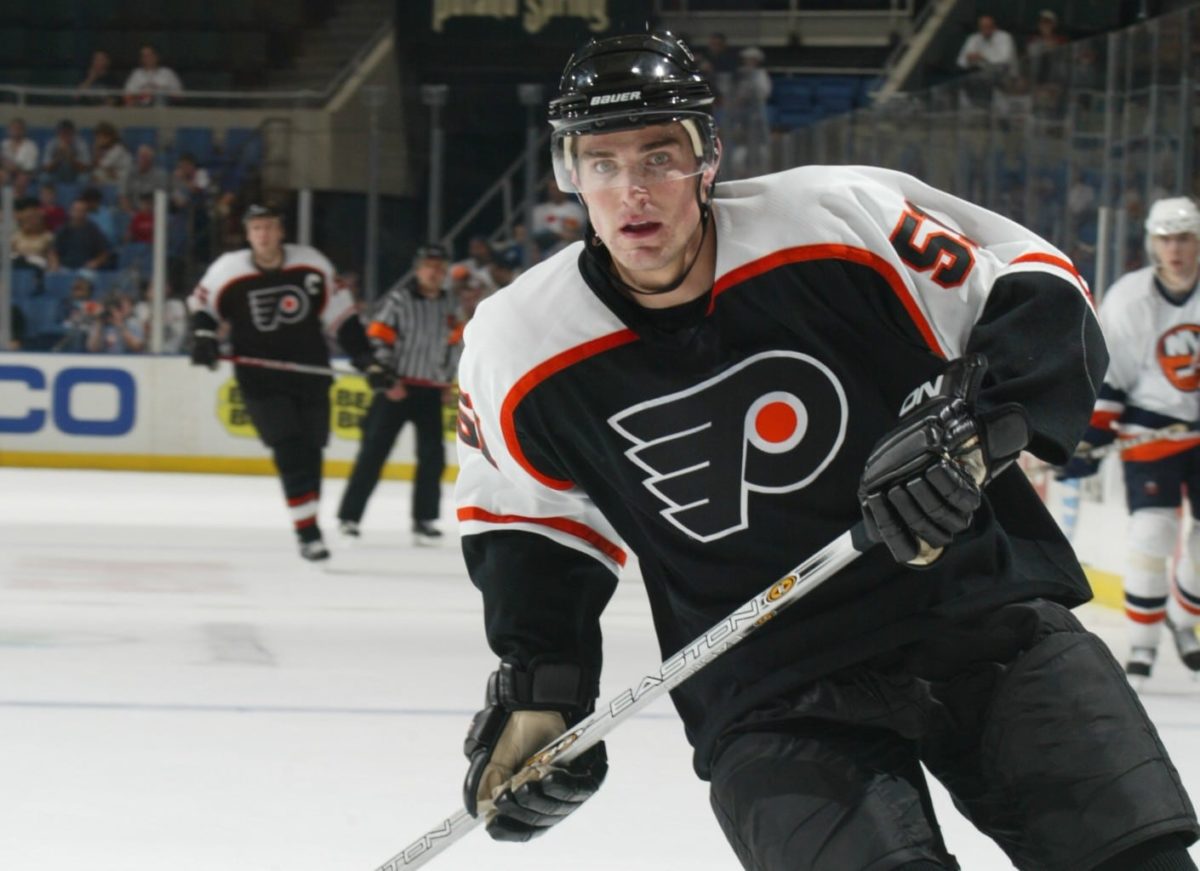
Traded to the Chicago Blackhawks in a small package, Sharp continued to get better as time passed. By his 2007-08 campaign as a 26-year-old, he scored a career-high 36 goals for 62 points. To drive home the fact that the Flyers lost the trade, he finished fourth place in Selke Trophy voting that season.
Sharp continued to be a fruitful top-six scorer in Chicago. He scored 65-75 points consistently when he was healthy. In 2009-10, he had 22 points in 22 playoff games to lead the Blackhawks to their first Stanley Cup since the early-1960s. To make matters worse, he finished the job over the Flyers in the Stanley Cup Final.
Sharp went on to win two more championships in Chicago, ending his career with three Stanley Cups. With 287 goals and 333 assists for 620 points in 939 games, it’s uncertain if the Flyers would have held back his potential or not if he remained there. Regardless, they definitely wish he did.
Dennis Seidenberg (2001)
Very late in the same draft as Sharp, the Flyers gave German defenseman Dennis Seidenberg a shot with their 172nd pick in that draft. With some professional experience already in the Deutsche Eishockey Liga (DEL), he became a desirable player for Philadelphia.
It didn’t take too much time for the long-shot defender to make the roster, appearing in 92 games for Philadelphia from 2002-06. Even though they hit on a player that was never supposed to make the NHL in the first place, he was a depth player at the time, and the Flyers had a nice trade offer on the table. A mid-round pick swap and Seidenberg landed them forward Petr Nedved, a player with over 700 points in his career at the time.
Nedved was on his last legs by the time he arrived in Philadelphia in 2005-06 and played professional hockey in Europe not too far after. As for Seidenberg, he made stops around the league as a top-four defenseman. He was at his best in 2012-13, playing just under 24 minutes each game and receiving a fourth- and fifth-place vote for the Norris Trophy that season. On a Flyers team that lacked defensive depth at that time, he would’ve been useful to have.
In terms of games played, Seidenberg leads all German defensemen with 859 under his belt. With no active defenseman anywhere near that total, it could be a long time before that record is broken.
James van Riemsdyk (2007)
Following a franchise-worst season in 2006-07, where the Flyers had a calamitous 22-48-12 record, they had the honor of selecting with the second overall pick in the 2007 NHL Draft. With that pick, they took New Jersey native James van Riemsdyk to give them an offensive spark.
It wasn’t until the 2009-10 season that he first appeared with the Flyers. He had decent production with 35 points in 79 games, but it was still not at the level they’d like out of a top-end draft selection. In those playoffs, van Riemsdyk struggled a bit. He only had six points in 21 playoff games, and the Flyers needed every bit of offense in that run. They lost in the Stanley Cup Final in six games, needing his spark to occur right then and there.
After a few seasons where van Riemsdyk didn’t live up to the expectations of a second-overall pick, the Flyers sent him to the Toronto Maple Leafs for defenseman Luke Schenn. The Flyers needed to get stronger on defense, so this was their natural solution. Right away, the trade didn’t look good on their end.
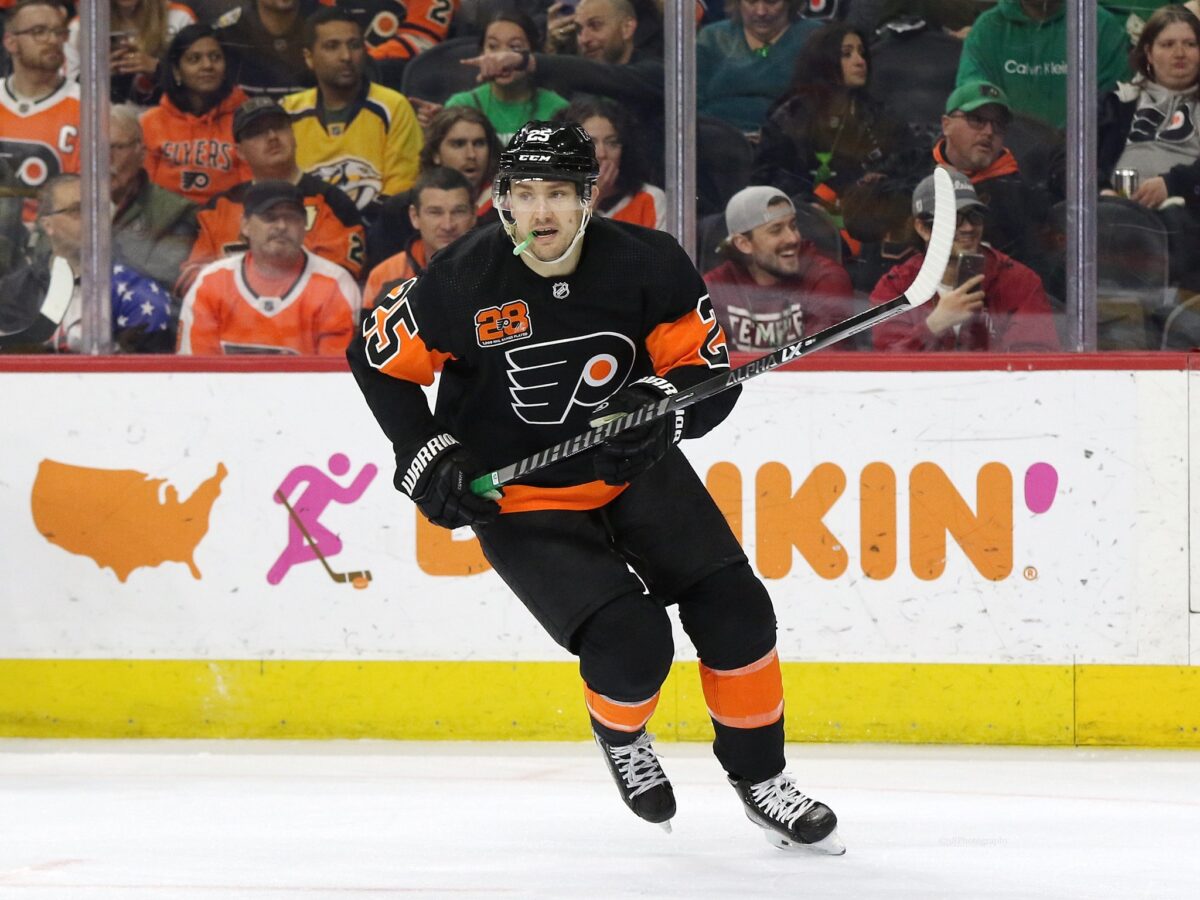
In the shortened 2012-13 season, van Riemsdyk had 32 points in 48 games. That was his best season to that point, and he only got better. Moving forward, he was a reliable scorer of 25 or more goals every season for the Maple Leafs. He became available in free agency after the 2017-18 season, and the Flyers were determined to not make the same mistake twice. Signed to a five-year, $35 million contract, the Flyers paid heavily for their mistake a few seasons prior.
Unfortunately, van Riemsdyk’s production from Toronto never came to Philadelphia, aside from a 48-point 2018-19 season, where he only played 66 games. In the end, he never amounted to that big deal he signed. Still, the over 600 points to his name put him among some solid players in NHL lore.
Whether it was through regrettable trades or simply not giving players a chance, the Flyers have drafted numerous players who went on to have valuable roles in the NHL after their time with Philadelphia. After decades worth of players who made them look foolish, hopefully they’ve learned their lesson.
